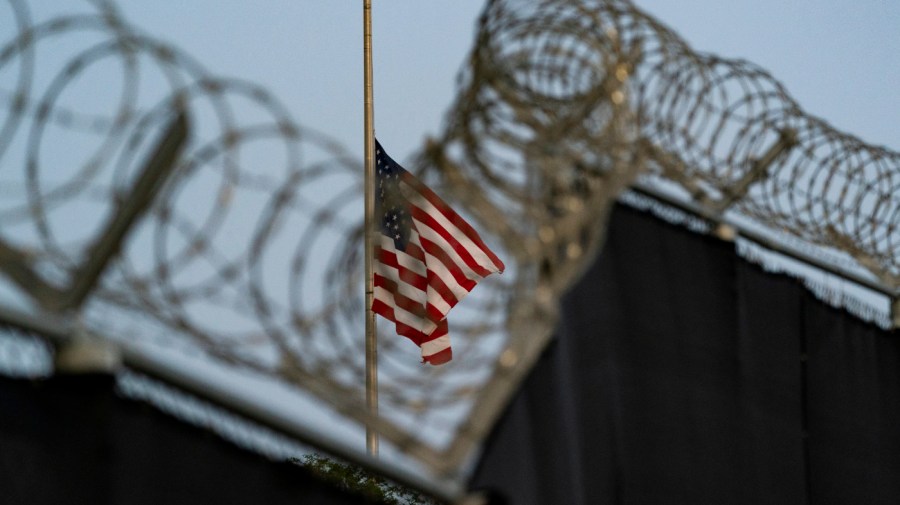
The U.S. on Monday transferred 11 prisoners out of Guantanamo Bay, the latest batch of inmates to leave the infamous facility in Cuba that once held around 780 detainees.
The 11 prisoners were Yemeni nationals, according to the Defense Department, and their transfer to the country of Oman brings the detainee population at the site down to just 15 people.
President Biden has continued the mission of the Obama administration to transfer prisoners out and wind down operations at the site that has become infamous for accusations of torture and abuse as the U.S. carried out the war on terrorism.
The Pentagon also announced a detainee transfer to Tunisia in December, but it’s unclear if Biden intends to bring down the population even further before he leaves office.
Several inmates are likely to remain for now, including the alleged 9/11 mastermind, Khalid Sheikh Mohammed, known as KSM, and four of his conspirators. Including KSM, four of the five are set to stand trial beginning this week.
The U.S. announced plea deals for KSM and three conspirators last year but Defense Secretary Lloyd Austin revoked them. Last week, a military appeals court ruled that Austin did not have the authority to revoke the plea deals, which included life sentences for KSM and the three conspirators.
The transfers this week were authorized for one detainee, Tawfiq Nasir Awad Al-Bihani, by an executive order signed by then-President Obama in 2009. The others were authorized by a review board.
“Although different processes, each of the 10 Yemeni detainees underwent a thorough, interagency review by career professionals who unanimously determined all detainees as transfer eligible consistent with the national security interests of the United States,” the Pentagon said in a release.
One of the detainees transferred was Shaqawi Al Hajj, 51, who spent 21 years at Guantanamo Bay despite never being charged with a crime and who was hospitalized after undergoing a hunger strike in 2017.
Hajj was represented by the Center for Constitutional Rights. Pardiss Kebriaei, a senior staff attorney at the legal foundation, said his thoughts were with Hajj as he “transitions to the free world after almost 23 years in captivity.”
“His release is hopeful for him and for us,” Kebriaei said in a statement. “We are grateful to Oman and to the individuals in the administration who made this transfer happen, and to the many people over the years whose work and advocacy paved the way for this moment.”
The legal foundation said Hajj was one of 119 victims named in a Senate intelligence report on the CIA’s alleged abuses, and that he spent more than two years at the CIA’s sites before transferring to Guantanamo Bay in 2004.
Of the 15 men still at the Cuba site, six have never been charged, three of whom are awaiting release and the other three waiting for clearance, according to the Center for Constitutional Rights.











